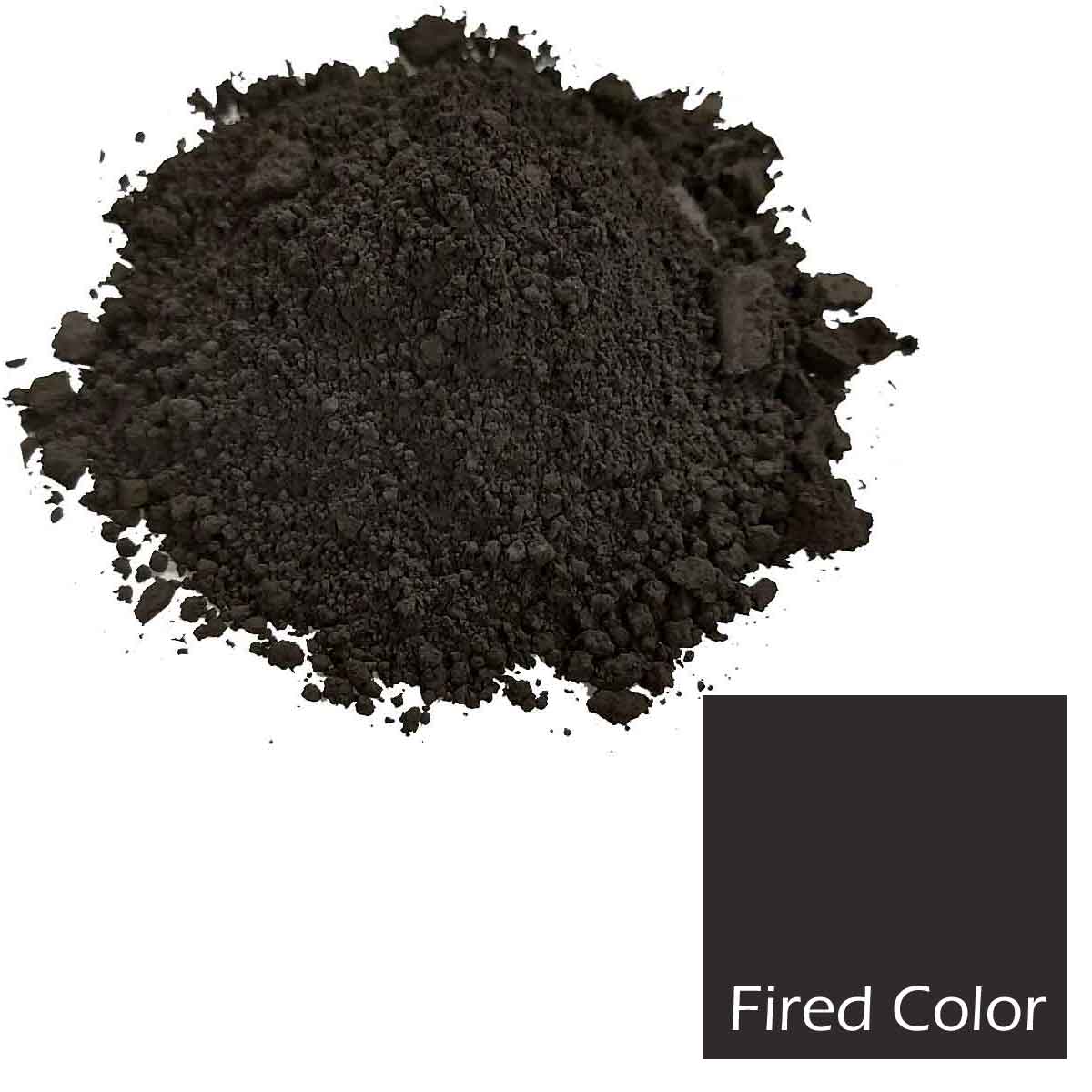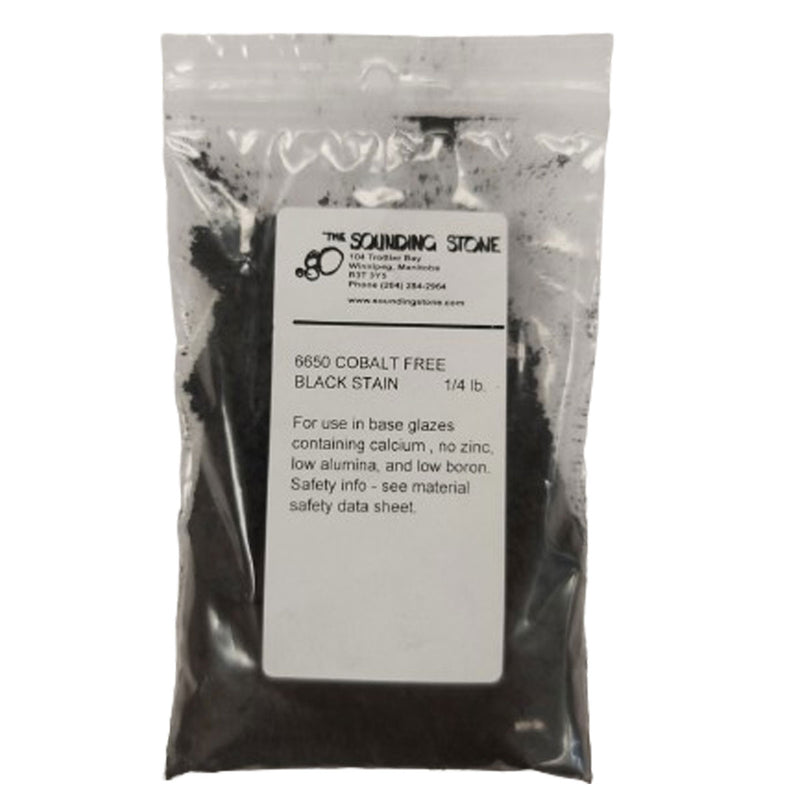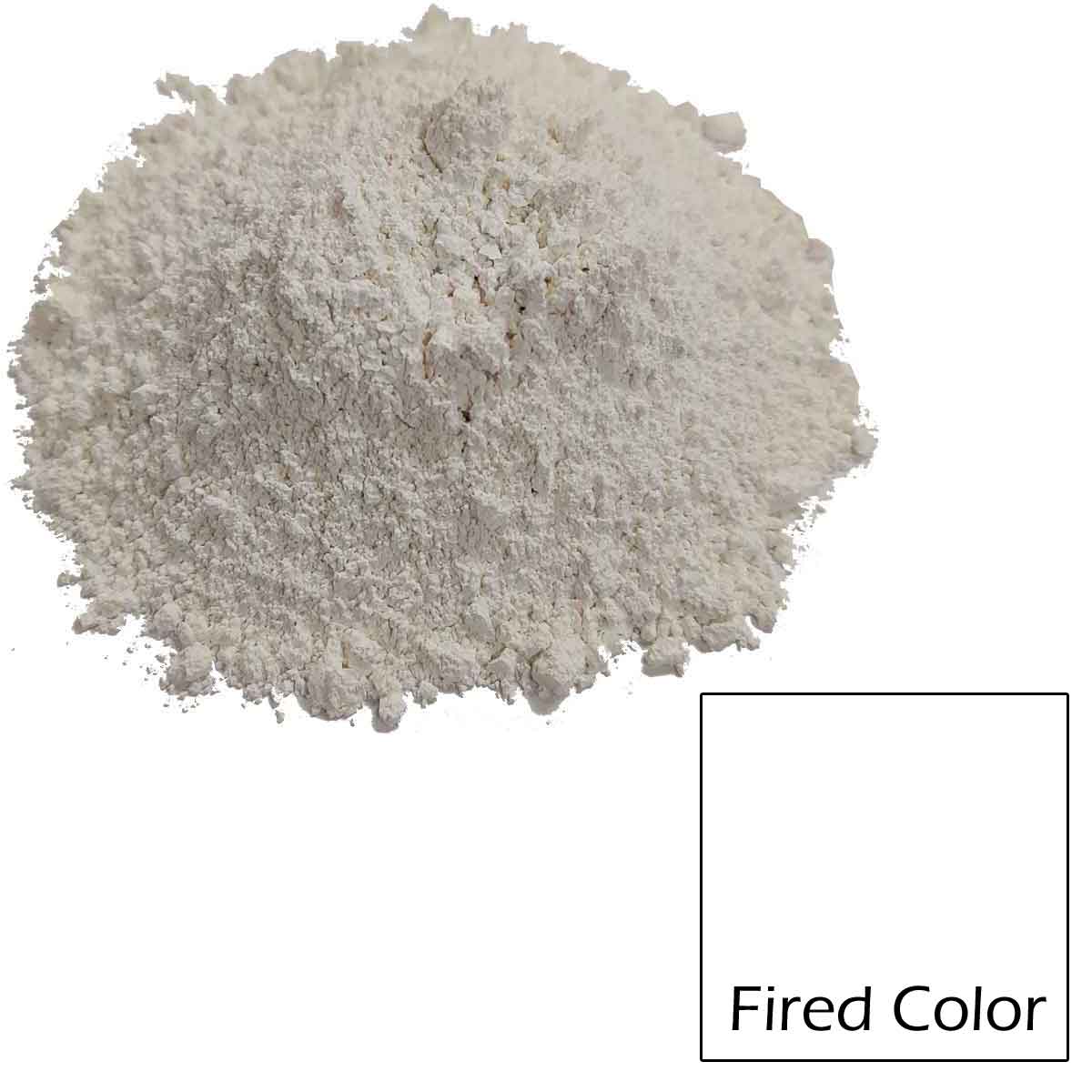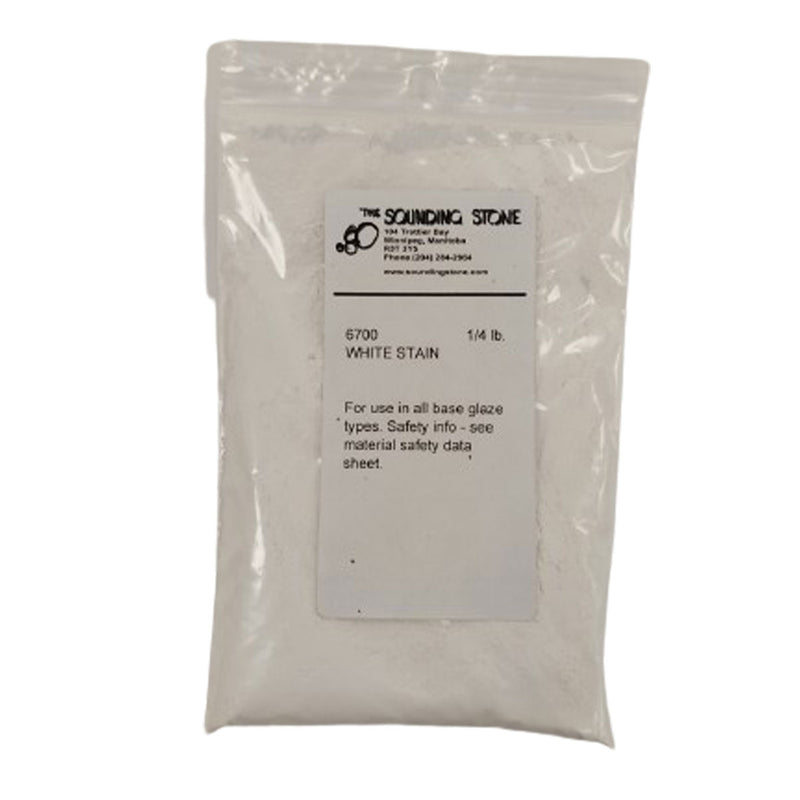
Stains are a mixture of ceramic oxides and coloring metal oxides that are melted in kilns, quenched, ground to specific mesh size (some are acid washed), and colored with organic dyes to simulate the fired color. Essentially they are fritted colorants. They are made and manufactured for several reasons: to provide a consistent and stable form of colorant that doesn’t dissolve in the glaze melt as easily as coloring metal oxides; to make colorants safer to use than raw metal oxides (commercial stains are less soluble in water); to allow repeatable and consistent results with minimal effort; and to allow you to fine tune your color selection to get the color you want at a reasonable cost. They can appear expensive, but time is money. Consider the countless hours of glaze testing that would be necessary without the consistency of a dependable commercial stain, then the prices are more reasonable.
These calcined pigments assure uniformity in quality and color for glaze, engobe, and body formulas. It is important to keep in mind that the base formula in which the stain will be used, as well as the firing temperature and firing method, will affect the color.
Test firing a formula with four percent stain will show how the combination will work and indicate if a greater or lesser amount of stain will create the desired color.
Click here for more detailed information on stain composition.
Mason 6650 Cobalt Free Black Stain
- Regular Price
- from $11.00
- Sale Price
- from $11.00
- Regular Price
-
- Unit Price
- Translation missing: en.general.accessibility.unit_price_separator
Mason 6700 White Stain
- Regular Price
- from $7.50
- Sale Price
- from $7.50
- Regular Price
-
- Unit Price
- Translation missing: en.general.accessibility.unit_price_separator




